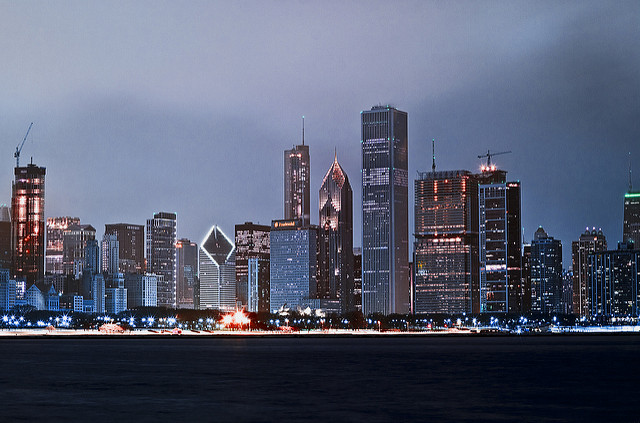As Hotels Outpace Demand, Chicago Is Not The Tourist Destination Of Rahm's Dreams
By Stephen Gossett in News on Jan 4, 2017 5:42PM
Mayor Rahm Emanuel has long gone out of his way to tout Chicago’s blossoming tourism industry. But at the same time, local hotels are expanding faster than demand grows, and Chicago's tourist demographics are looking rather blinkered, perhaps undercutting the idea of just how robust such growth has been.
In 2017, the number of hotel rooms in Chicago will balloon to 44,000, with 3,000 new units set to hit the local hospitality market, Ted Mandingo, director of locally based industry consultant TR Mandingo & Co., told the Tribune last week. The occupancy rate is expected to fall from 76 percent in 2015 down to 72.5 percent in 2017, he said. (That figure is reportedly within the Top 10, but below cities like Miami and San Francisco.)
With violent crime making national headlines, Emanuel has of course lauded the city’s tourism bona fides as a counter-narrative—one that came equipped with a host of perks and press pushes. Last April, the mayor publicly touted the city’s 2015 travel numbers—which passed 50 million domestic tourists for the first time—and the industry’s job-growth potential. To push the trend along, he’s given tax breaks and sweetheart discount deals, such as the one offered to the NFL to stage their draft in Grant Park in 2015 and 2016, which saw the league pay rates millions below the market price.
But whereas domestic visitors are making the trip here, that’s not so much the case with international travelers. Out of the 52 million visitors in 2015 that Rahm boosted, only 1.5 million were international travelers, David Whitaker, of Choose Chicago, told the Trib.
"There's no reason we shouldn't be welcoming 2 million, 3 million, 4 million, 5 million," he said.
Of course, the hotel industry remains in, to borrow a buzzword, disrupted flux. The home-share restrictions passed by the City Council last year were light enough to keep Airbnb smiling. And during the Cubs' playoff run, Airbnb hosts were smiling all the way to the bank. But the hotel gap, as it were, and the relative lack of internationalism among our guests seems to show that, despite the administration's rosy outlooks, Chicago still has a way to go to reach the stature our mayor desires.
